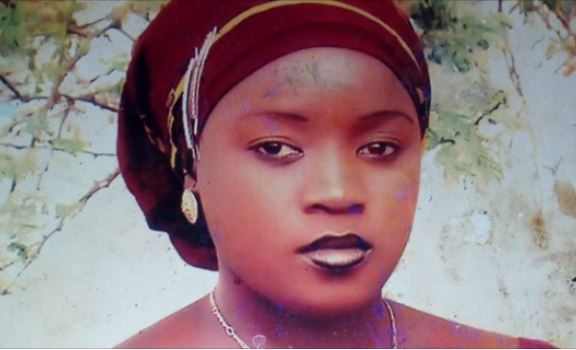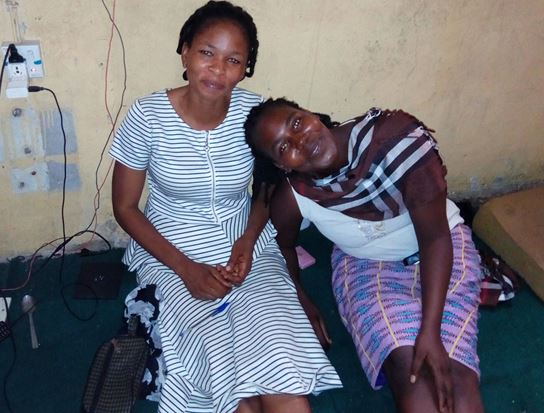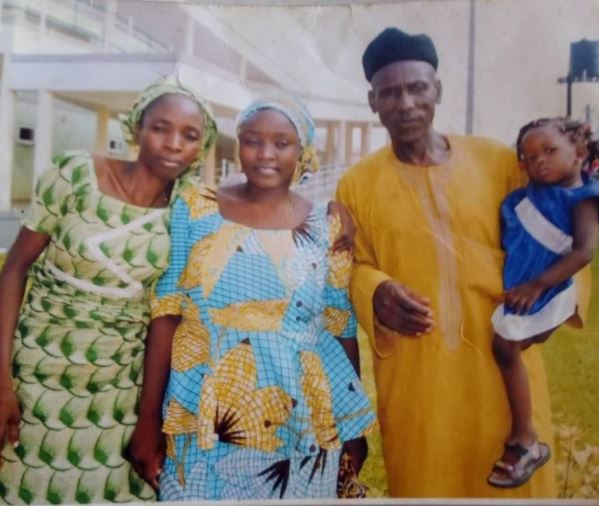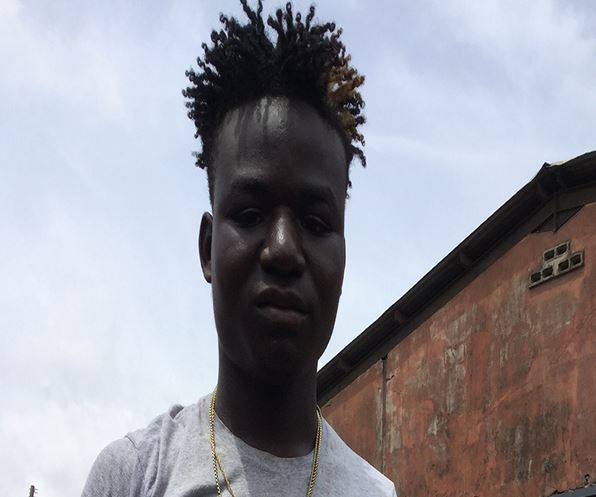
Lydia Joshua
Lydia Joshua, one of the 276 girls kidnapped at Government Girls Secondary School, Chibok, Borno state, on April 14, 2014, has disclosed that during the three years she spent in the captivity, she only drank water when it rained.
Joshua was among the captives released through a negotiation with the Boko Haram sect in 2017. She is now trying to adjust to life outside the strange environment. She narrated her experience in bondage and the plight of those who are yet to be free. Though TheCable could not freely speak to her largely due to certain governmental restrictions, her parents and loved ones were happy and enthusiastic to retell what she had told them of the dark years.
Matina Butu, the victim’s aunt told TheCable that the tales were heart-wrenching.
“The girls suffered, especially the ones who refused to marry Boko Haram. The Boko Haram people would ask the girls to raise their hands if they wanted to marry any of the men. The girls who did not express interest were starved,” said Butu who left Borno for Lagos as a result of Boko Haram activities.
SCARY TALES OF SNAKES, HUNGER AND FEAR
“When it rained, they would be drenched and their clothes would dry up on their bodies. It is also when it rains that they get to drink water. Lydia told her stories of sleeping beside snakes, going several days without food and sewing clothes with what she described as hand needles.
“They slept on flooded floors for three years. It’s only God that kept Lydia alive and I am still shocked. Lydia told me they ate leaves and when they gave them food, it was never enough until the negotiations for their release started taking place and they started giving them food.”
Butu also spoke about the trauma of Lydia’s absence and the effect of insurgency on her family.
Although she is just 26 years old, five years older than her niece, Butu is a widow with three children.

Lydia’s aunt (pictured left) and a friend at her Lagos apartment
She narrated how the insurgents killed her husband.
“Our village is empty. Nobody is there, people have gone to different places. They also took our farms so that we cannot feed any longer,” she said.
“They (Boko Haram) are leaving widows of women. They will come to your house and kill your husband and leave you alone to take care of the children. They killed my husband and I am left alone with three children take care of.”
She disclosed that Lydia’s grandfather died suddenly in 2014 because he was traumatised.
“His granddaughter had been kidnapped and shortly after, his son was beheaded in front of him,” she said.
LOVE BEYOND BORDERS
Yakubu Amos, Lydia’s boyfriend, got the test of his life when Boko Haram abducted her. A young man full of life, he could have moved on and found someone else but like a loyal partner, he stood by her all through the years in bondage. He told TheCable of his plans to marry her after school. His eyes lit up when he spoke about the time Lydia came to visit her parents in Lagos, last December.
“I threw her a party. Just here,” he said, pointing at a camp in Kirikiri, Apapa, Lagos. “Everyone was happy to see her.”
Amos said it was he who took Lydia to school before the kidnap happened.
“That is why anytime I thought of her when she was with Boko Haram, I cried terribly,” he said.
“Lydia told me she did not have clothes to wear. She said they made their clothes themselves in the bush and almost died of hunger. Only when it rained did she have water to drink. She suffered greatly.”

Lydia (in the middle) with her parents
The government is responsible for the education and upkeep of the freed girls. In September 2017, government enrolled 86 girls at the American University of Nigeria, Yola, Adamawa state, for pre-degree courses that will enable them meet the criteria for entry into degree programmes. Ordinarily, this should make family members of the victim excited but Lydia’s aunt is worried.
“Lydia and all the other girls were already taking their final paper when they were kidnapped, so why are they in JSS1? How long will it be before they write secondary school certificate examination and then get into the universities? When they are old women?” she asked.
CONFUSION OVER EDUCATION OF THE GIRLS
Butu’s worry matches that of her sister, Mary Joshua, who is also Lydia’s mum. She protested the decision to enrol her daughter is in JSS1.
But Amos seems to be the only one with this understanding as he insists she is studying for a diploma.
Aisha Oyebode, founder of the Murtala Muhammed foundation and member of the Bring Back our Girls campaign, said the confusions stems from a weak communication structure between the government and the parents of the girls.
Oyebode said it is important to carry the families of the girls along in their process of reintegration.

Amos: The lover who stood the test of time
While Butu is worried that Lydia is getting a poor education especially because she could not interact in English language when she came to visit her parents in Lagos in December, Oyebode insisted that the education the girls are currently getting is standard.
“They are currently at the American University of Nigeria in Yola; and that is a silver lining that they will get the opportunity to get a good education.” Oyebode says.
“I have always advocated that the work with the girls should be done with the knowledge of their parents. Before the girls were taken away, they were in the custody of the parents. So, they should be returned to the custody of their parents.
“The families have to be patient. What the insurgency has done is to put the spotlight on how bad education is in the north. The damage (poor education for Lydia) has been done and it will take more than one year to reverse it.”
***
Source: TheCable


Post A Comment:
0 comments: